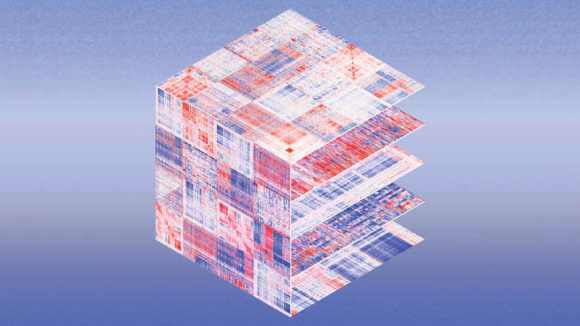 We at Illumina are delighted to be part of a great beginning in pan-cancer research. The work embodied by The Cancer Genome Atlas and the international cancer community provides a beacon for the future: It will transform our ability to understand, classify, and treat cancer. The accumulation and dissemination of knowledge that emerges from these continually expanding efforts will usher in a new era of precision medicine to tackle this complex, debilitating, and often fatal disease.
We at Illumina are delighted to be part of a great beginning in pan-cancer research. The work embodied by The Cancer Genome Atlas and the international cancer community provides a beacon for the future: It will transform our ability to understand, classify, and treat cancer. The accumulation and dissemination of knowledge that emerges from these continually expanding efforts will usher in a new era of precision medicine to tackle this complex, debilitating, and often fatal disease.
Big problems require big solutions. The pan-cancer research community brings great focus to the problem of how to tackle cancer. Every tumour is different: each one is a unique combination of mutations, evolving in time and space, influencing biological functions and responses to environmental exposures and treatments. Nevertheless, cancer is a disease of the genome, and its complexity and diversity can be measured and documented using the powerful genomic approaches that are shared across this community and described in these publications.
A hallmark of these studies is the highly integrative nature of the work. Data of many types (DNA, RNA, methylation, proteins, pathways), each with benchmarked quality criteria, are brought together and released rapidly to the public. Centralization and international sharing is key to maximizing utility for researchers and clinicians in academia and industry. These pioneering pan-cancer studies, and their anticipated future growth, will create a rich knowledgebase that will be a new foundation for patient care.
Today’s publications point the way ahead. It is becoming possible to annotate individual cancer genome sequences rapidly with rich biological information. The resulting information will enable clinicians to derive precise actionable information of great clinical utility. At Illumina, we share the pan-cancer community’s excitement that a detailed description of a person’s tumour will soon become part of the clinician’s armoury in the fight against cancer.
Illumina is proud to be a part of the pan-cancer community by enabling scientific advances through innovative technology and by sponsoring the public dissemination of knowledge.

David Bentley
Vice President & Chief Scientist
Illumina Inc.


